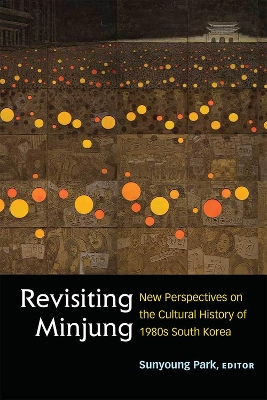Perspectives On Contemporary Korea
1 total work
An epoch-marking alliance of laborers, students, dissident intellectuals, and ordinary citizens was at the heart of South Korea's transformation from a dictatorship into a vibrant democracy during the 1980s. Collectively known as the minjung ("the people"), these agents of Korean democratization historically carved out an expanded role for civil society in the country's politics. In Revisiting Minjung, some of the foremost experts in 1980s Korean history, literature, film, art, and music provide new insights into one of the most crucial decades in South Korean history. Drawing from the theoretical perspectives of transnationalism, post-Marxist studies, intersectional feminism, popular culture studies, and more, the volume demonstrates how an era that is often associated with radical politics was, in effect, the catalyst for the subsequent flourishing of democratic and liberal values in South Korea.
Revisiting Minjung brings new themes, new subjectivities, and new theoretical perspectives to the study of the rich ecosystem of 1980s Korean culture. Treated here is a wide array of topics, including the origins of minjung ideology, its critique by the right wing, minjung art and music, workers' literary culture, women writers and the resurgence of feminism, erotic cinema, science fiction, transnational political travels, and the representations of race and queerness in 1980s popular culture. The book thus details the origins and development of some of the movements that shape cultural life in South Korea today, and it does so through analyses that engage some of the most pressing debates in current scholarship in Korea and abroad.
Revisiting Minjung brings new themes, new subjectivities, and new theoretical perspectives to the study of the rich ecosystem of 1980s Korean culture. Treated here is a wide array of topics, including the origins of minjung ideology, its critique by the right wing, minjung art and music, workers' literary culture, women writers and the resurgence of feminism, erotic cinema, science fiction, transnational political travels, and the representations of race and queerness in 1980s popular culture. The book thus details the origins and development of some of the movements that shape cultural life in South Korea today, and it does so through analyses that engage some of the most pressing debates in current scholarship in Korea and abroad.
